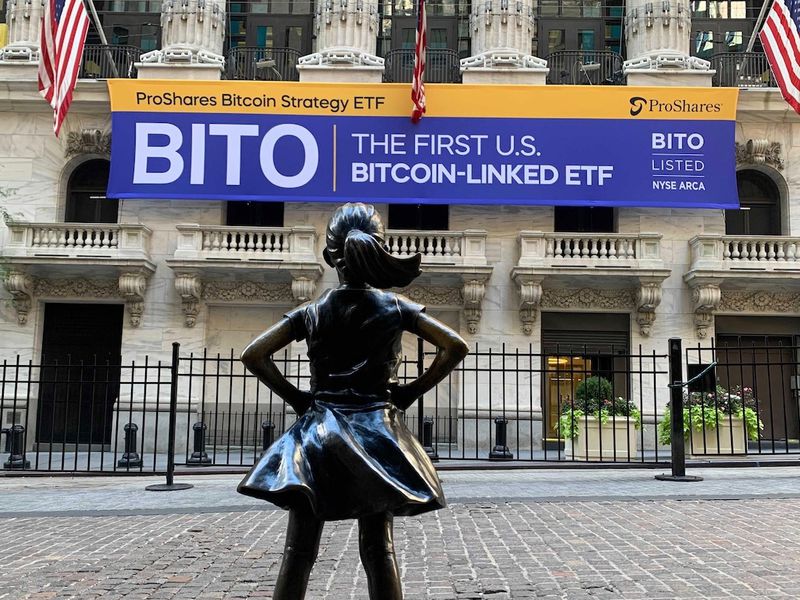Cryptocurrency in China: Over the Counter, Under the Table

Dovey Wan is a partner at Primitive Ventures, a crypto asset investment fund, and a member of CoinDesk’s advisory board.
This essay is presented as a part of No Closing Bell, a series leading up to Invest: Asia 2019 focused on how the Asian crypto markets are interacting with and impacting global investors. To keep the conversation going in person, register for Invest: Asia 2019 coming up in Singapore on Sept. 11-12.
There remains a great deal of confusion surrounding the legal status of cryptocurrency in China.
Between headlines like “China Bans Bitcoin”, “China Bans Crypto Exchanges?”, and “China Bans Bitcoin Mining,” it’s no surprise that most people are unclear on where China stands on cryptocurrency and whether that has any real bearing on how its citizens behave.
We hope to demystify this and offer some insight into the legal status of cryptocurrency and related matters.
In law
In China, bitcoin is legally recognized and protected as virtual property. This has been the law since 2013 and the classification was reconfirmed in the recent Hangzhou court ruling.
However, this does not recognize bitcoin or other cryptocurrencies as legal currency. Hence, any use of Bitcoin as a currency is illegal. Occasional peer-to-peer OTC transactions are acceptable, as long as the behavior remains on a small scale. All mainland financial institutions are barred from any involvement in virtual currencies and foreign entities are also prohibited from serving mainland customers.
China has been progressively restricting more aspects of cryptocurrency within its borders dating back to September 2017, when it began by banning ICOs because of the financial risk and frequent fraud.
Since then, China has not hesitated to prosecute seriously offending ICOs or crypto scams, which were clearly scamming their customers, such as Hero Chain, EOSPLUS, TronDotWallet, PlusToken, MGC, and DOGX. Some of them raised a ton of money from retail and exit scammed, some disguised as wallets or high-yield quant fund. The largest among them is PlusToken, which has scammed over a whopping $3 billion in total. Core team members of PlusToken were arrested earlier this year in Vanuatu with the help of local police and are now facing decades in jail.
The ICO rules also restricted the activity of cryptocurrency exchanges domiciled in mainland China, as they are considered to be facilitating illegal fundraising and financial crimes. To preserve their businesses after the ban, these exchanges restructured and moved overseas to countries such as Japan, Singapore and registered in countries like the Seychelles and Malta.
However, some exchanges, including Huobi and OKEx, continue to conspicuously serve Chinese customers in crypto to crypto trading, and facilitate yuan to BTC/USDT exchange disguised behind a peer-to-peer OTC front.
The regulatory requirements on bitcoin mining are relatively fuzzy, the “ban” was not issued by a legal or regulatory department, but rather came from a “industry structure reform recommendation” from a state planning agency, which usually serves as a guideline instead of actual regulation. Hence, we haven’t seen any material impact on local mining facilities due to this “ban”. While many Chinese miners are currently looking for foreign sites, that is primarily due to fierce local competition rather than regulatory concerns.
In practice
The actual handling of cryptocurrency in mainland China in practice doesn’t reflect the letter of the law, however.
It’s no secret that Chinese citizens remain deeply involved in cryptocurrency mining, trading, and ICOs/IEOs. While official figures say that the percentage of cryptocurrency trading attributable to the yuan has dropped from 90% to 1% in the wake of the 2017 regulation, this does not account for over-the-counter trading which is where most fiat to crypto volume in China has shifted to since the regulation.
OTC options are offered by exchanges like Huobi as well as by locally managed WeChat groups. These OTC desks take the form of a marketplace where buy and sell orders are offered manually and transactions are done in a peer-to-peer manner. The platform here merely acts as a place for buyers and sellers to discover each other, rather than facilitating trades itself as exchanges do.
Payment can be handled between two parties once they have agreed on a trade through WeChat, Alipay, or banking wire, though China is attempting to crack down on that as well by blocking mobile payment platforms from processing crypto related payments. The biggest risk of peer-to-peer OTC trading is counterparty risk. If you want to buy Bitcoin from someone you have to 1) Agree on the price with that party, 2) Send RMB first, 3) Receive Bitcoin once the other party has received the payment.
For this reason, most of the OTC WeChat groups have very strict rules for dealing with new members and only deal with those who have been in the group for long enough to have a good track record.
To give you a sense of the volume that these desks handle, Huobi OTC has surpassed $100M USD in volume and WeChat OTC groups such as this one report processing a daily volume of $300k a day on average. There are thousands of similar WeChat OTC groups operating at a small scale, but together add up to a significant amount of crypto trading volume originating from China that is not accounted for by official figures.
If one has the desire, buying cryptocurrency in China is by no means difficult. There are plenty of tutorials such as this one outlining various simple ways to purchase cryptocurrencies with RMB. Local liquidity for Bitcoin and USDT are excellent, despite what the regulators’ official statements might suggest.
Once traders have gotten their hands on Bitcoin or USDT, they can then freely exchange that for other cryptocurrencies on exchanges, even ones that try to block Chinese customers, by using the credentials of people from other countries. KYC materials can be obtained for a mere $75 online and allow Chinese citizens access to exchanges as well as IEOs and ICOs. Crypto-to-crypto volume on exchanges like Huobi, OKEx, and Gate.io are still very dominated by Chinese retail, and OKEx derivatives trading is also dominated by Chinese whales and traders.
As a result of the ban, different trading behaviors and selections of assets have emerged on these Chinese dominated exchanges compared to those on US exchanges like Bittrex, Bitstamp and Kraken.
After the ban, China took to using Tether ($USDT) as a substitute to yuan in trading pairs. Tether has since developed into a USD replacement in even some non-crypto cross-border business cases. This is one possible explanation for why Tether has been so resilient to negative press such as the Tether-Bitfinex $850 million cover-up and over 60% of newly issued Tether is traded in Chinese background exchanges —it is supported by the crucial role it plays in the huge amount of crypto trading that depends on it in China.
Because of the central role it plays, people in China don’t care whether it’s fully backed by reserve, as long as they remain able to exchange USDT for Yuan with local counterparties.
China’s legal actions against cryptocurrency certainly had a huge impact on crypto activity within its borders. It changed the landscape of crypto trading in China and caused many crypto companies to move overseas. But the resilience and perseverance of Chinese crypto entrepreneurs are remarkable, which clearly manifests “what doesn’t kill you makes you stronger”.
Cryptocurrency is still alive and well in China.
China flag image via Shutterstock










